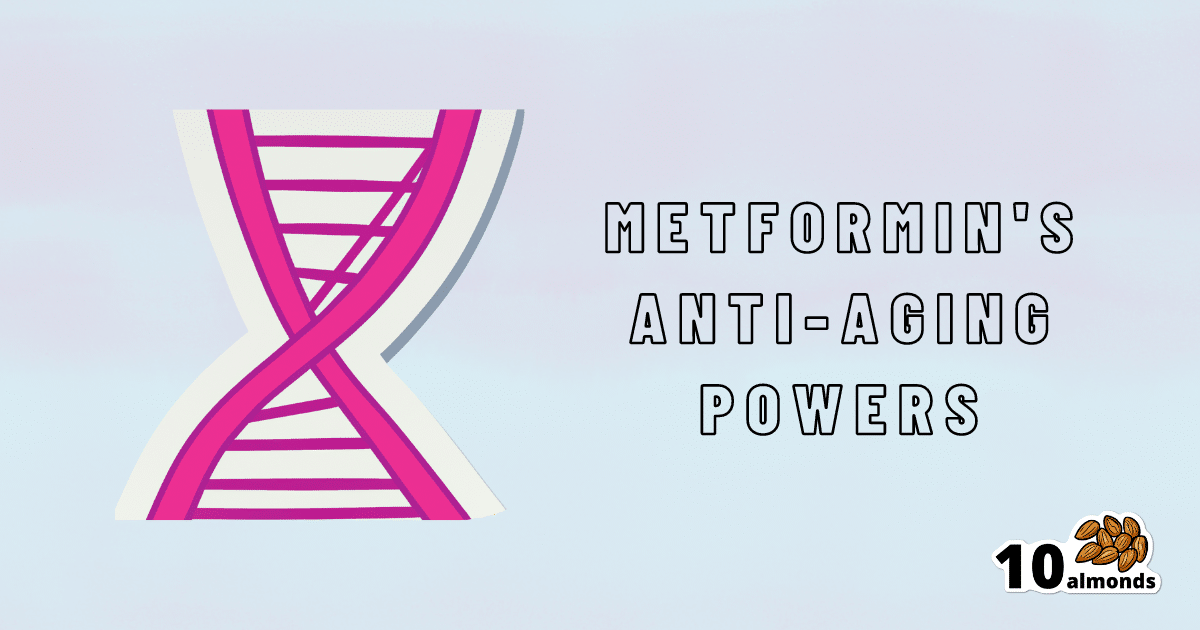How Metformin Slows Aging
Metformin, commonly used to manage diabetes, has also been found to slow down aging. Recent research suggests it can reduce the risk of age-related diseases and conditions.

Metformin And How It Slows Down Aging
That’s a bold claim for a title, but the scientific consensus is clear, and this Research Review Monday we’re going to take a look at exactly that!
Metformin is a common diabetes-management drug, used to lower blood sugar levels in people who either don’t have enough insulin or the insulin isn’t being recognized well enough by the body.
However, it also slows aging, which is a quality it’s also been studied for for more than a decade. We’ll look at some of the more recent research, though. Let’s kick off with an initial broad statement, from the paper “The Use of Metformin to Increase the Human Healthspan”, as part of the “Advances in Experimental Medicine and Biology” series:
In recent years, more attention has been paid to the possibility of using metformin as an anti-aging drug. It was shown to significantly increase the lifespan in some model organisms and delay the onset of age-associated declines. Growing amounts of evidence from clinical trials suggest that metformin can effectively reduce the risk of many age-related diseases and conditions, including cardiometabolic disorders, neurodegeneration, chronic inflammation and frailty.
How does it work?
That’s still being studied, but the scientific consensus is that it works by inducing hormesis—the process by which minor stress signals cells to start repairing themselves. How does it induce that hormesis? Again, still being studied, but it appears to do it by activating a specific enzyme; namely, the AMP-activated protein kinase:
Read: Metformin-enhances resilience via hormesis
It also has been found to slow aging by means of an anti-inflammatory effect, as a bonus!
Any bad news?
Well, firstly, in most places it’s only prescribed for diabetes management, not for healthy life extension. A lot of anti-aging enthusiasts have turned to the grey market online to get it, and we can’t recommend that.
Secondly, it does have some limitations:
- Its bioavailability isn’t great in tablet form (the form in which it is most commonly given)
- It has quite a short elimination half-life (around 6 hours), which makes it great to fix transient hyperglycemia in diabetics—job done and it’s out—but presents a logistical challenge when it comes to something so pernicious as aging.
- Some people are non-responders (a non-responder, in medicine, is someone for whom a drug simply doesn’t work, for no obvious reason)
Want to know more? Check out:
Metformin in aging and aging-related diseases: clinical applications and relevant mechanism
Share This Post
Learn To Grow
Sign up for weekly gardening tips, product reviews and discounts.




